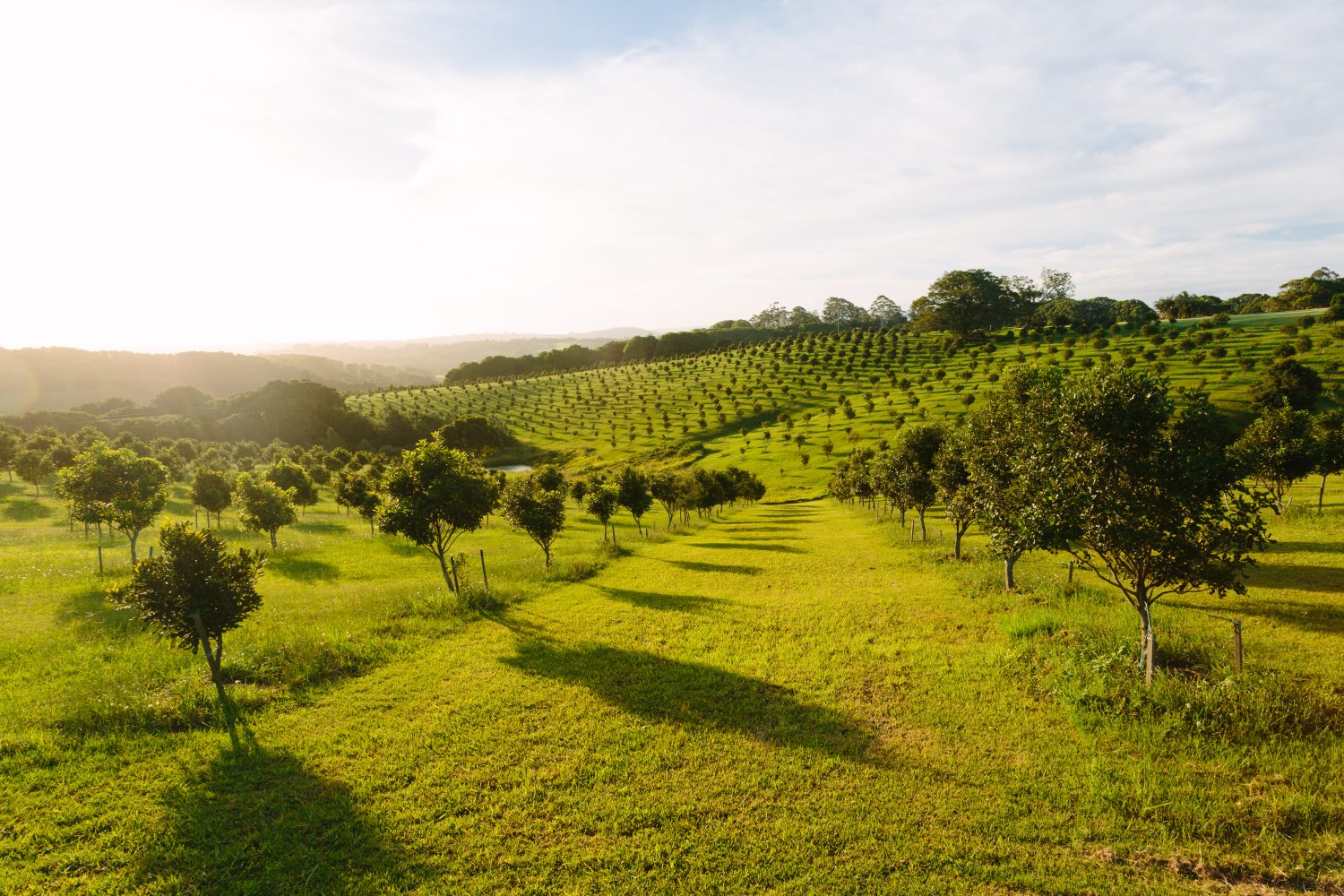In an article recently published for the Australian Macadamia Society, Keiran King, Sales & Business Manager for Rocky Point Production explains what growers should look for in a quality compost product for their orchard health.
 The hum of machinery is a familiar early morning sound as the sun rises over the compost production site of Rocky Point between Brisbane and the Gold Coast. These sounds signal another busy day blending and manufacturing products, but beyond the normal morning work activity there is an army of silent workers; billions of tiny microbes, fungi and beneficial bacteria going about their business in complete silence. They are busy breaking down organic material and turning it into rich dark compost.
The hum of machinery is a familiar early morning sound as the sun rises over the compost production site of Rocky Point between Brisbane and the Gold Coast. These sounds signal another busy day blending and manufacturing products, but beyond the normal morning work activity there is an army of silent workers; billions of tiny microbes, fungi and beneficial bacteria going about their business in complete silence. They are busy breaking down organic material and turning it into rich dark compost.
To produce a high standard compost takes time, some know-how, a constant supply of raw ingredients and some patience. Further to these essential elements, composting on a commercial scale requires significant investment in plant and equipment, is labour intensive, occupies a large area and requires stringent environmental controls and approvals.
Australian standards should be used as the starting point of quality, and this is the minimum requirement used by reputable suppliers.
During the year as I am talking to growers, before harvest even finishes, they are already looking ahead to managing their orchard floor and improving soil health. One of the vital steps in many orchards is the application of compost. Growers are essentially working on the long-term health of their soil and their orchard by applying compost each season. Growers see many benefits from applying compost, including:
- Improving soil organic matter
- Increasing soil carbon
- Increasing soil microbial activity
- Suppressing disease
- Protecting against erosion
- Improving tree health
- Increasing yield.
To get the maximum results year on year it is important to source a good quality compost. But how do you know you are getting a quality product? What should you look for and what should you be asking of the supplier? Here are some of the basics:
Identifying a good quality compost
Good compost will be easily recognisable and will have the following characteristics:
- Smell | an earthy smell, with no bad (sour, rotten or ammonia-like) smells
- Texture | moist and earthy, not wet and sloppy or dry and powdery. Easy to mechanically spread.
- Appearance | dark soil-like particles, in which original organic materials are not distinguishable.
As well as what the product should look, feel and smell like it is important to do some homework prior to purchase. Make sure you know your compost.
Raw Ingredients
If you want to finish with a quality product it is important that the supply of material is consistent in its makeup.
- You should know what feedstock is used to produce the compost
- You should know if manures are used in the blend you are buying
The Composting Process
Make sure you are receiving a fully composted and pasteurised product. Properly composted material will exclude weeds, pathogens, potential disease-carrying organisms and physical contaminants. It is important to do some homework prior to purchase, and you can start by asking your supplier the following questions:
- How long has the product been composted for?
- What temperatures were reached during the composting process? Has the product being pasteurised?
- Were any liquid wastes used in the compost manufacture? If so, what were they?
- If manures were used, at what point in the composting process were they added?
The correct manufacture of compost is particularly important to those growers and suppliers who have Freshcare Standards or HACCP requirements.
Supporting Documentation
In addition to knowing the composting process and the makeup of the compost, the supplier should also be able to provide you with documentation to back up their claims. Some examples of this can include:
- An independent analysis for the product from a reputable laboratory. The product should as a minimum be tested to Australian Standard AS4454 Composts, soil conditioners and mulches.
- An organic product certification. This is vital if anyone is considering growing organically and will also give any grower the assurance that only quality ingredients are being used.
Finally, by taking some of the guess work out when using compost it becomes much easier to manage other inputs and simply becomes another tool you can use to manage your crop and tree health.
Further Information
If you would like to discuss compost for your trees, or to get in touch with Keiran, please contact us.
_MEB.png?width=842&height=596&name=RP_HorizontalColour(R)_MEB.png)



